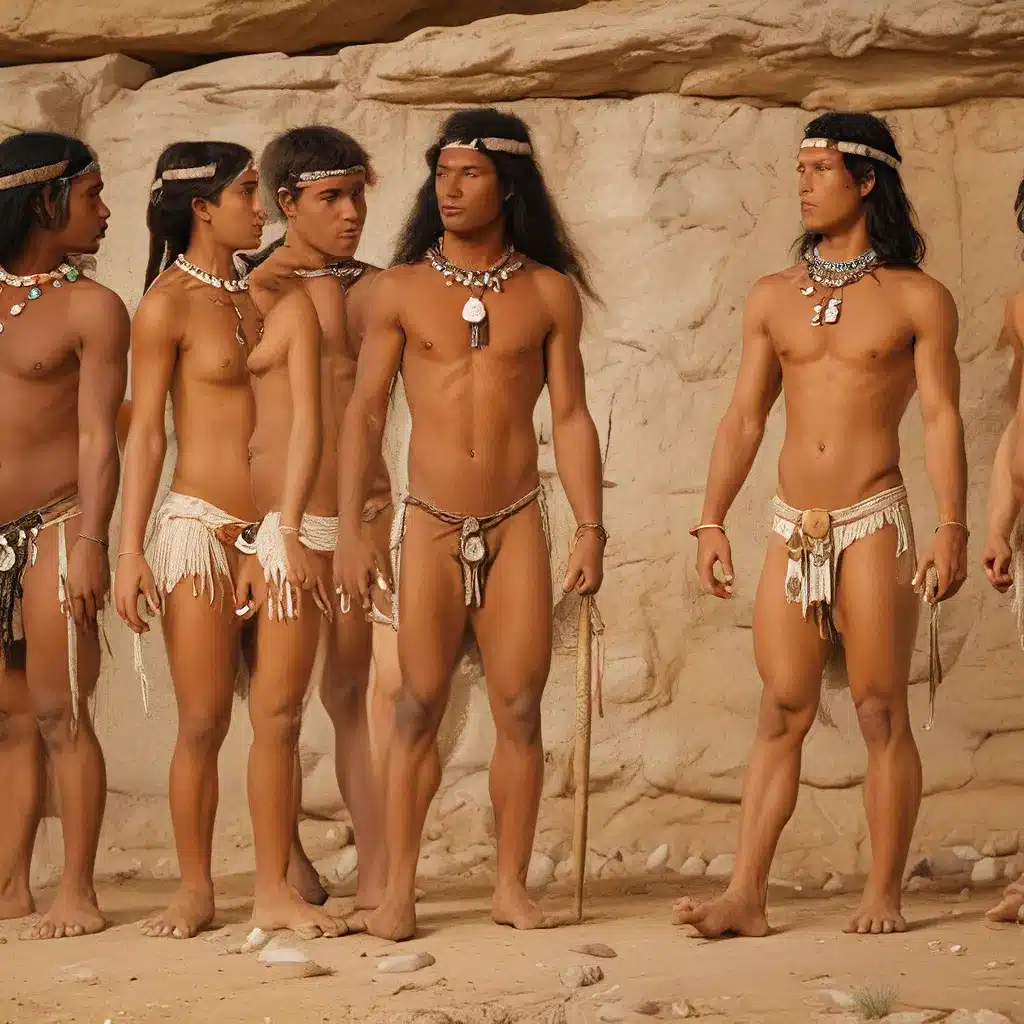
The pursuit of understanding the past is a captivating and unending journey, filled with tantalizing clues and enigmatic revelations. As we delve deeper into the annals of history, we uncover the remarkable stories of ancient civilizations that have long been shrouded in mystery. From the Mesopotamian empires to the enigmatic Mayan kingdoms, each buried treasure trove holds the potential to rewrite our understanding of the human experience.
Unveiling the Secrets of the Past
Throughout the ages, intrepid archaeologists and dedicated historians have dedicated their lives to uncovering the hidden narratives of bygone eras. Through meticulous excavation, painstaking analysis, and groundbreaking discoveries, they have pieced together the fragmentary evidence that allows us to glimpse the lives and legacies of these forgotten civilizations.
One of the most significant recent breakthroughs in this field has been the discovery of the Antikythera mechanism, a 2,000-year-old Greek artifact that has been hailed as the world’s first analog computer. This remarkable device, unearthed from the seafloor off the coast of Greece, has challenged our understanding of ancient technological prowess, shattering the misconception that the ancients were primitive in their scientific and mathematical abilities.
The Lost Kingdoms is a prime example of how the exploration of these ancient civilizations can captivate the public’s imagination. By delving into the rich tapestry of the past, we not only gain a deeper appreciation for the resilience and ingenuity of our ancestors but also uncover insights that can inform our understanding of the present and shape our vision for the future.
Deciphering the Enigmas of Antiquity
One of the most intriguing aspects of ancient civilization is the diverse array of cultural practices and belief systems that have evolved over millennia. From the Aztec rituals of human sacrifice to the Mesopotamian pantheon of deities, these belief systems offer a glimpse into the worldviews and societal structures of the past.
The deciphering of the Rosetta Stone, for instance, was a groundbreaking achievement that allowed scholars to unlock the secrets of ancient Egyptian hieroglyphs. This pivotal discovery paved the way for a deeper understanding of Egyptian culture, its religious practices, and the political structures that governed this remarkable civilization.
Similarly, the ongoing efforts to decipher the Mayan script have revealed a wealth of information about the Mayan civilization, its intricate calendars, and its sophisticated understanding of astronomy. These cultural insights not only fascinate the public but also serve as a reminder of the resilience and ingenuity of our ancestors, who grappled with the same fundamental questions that continue to shape our modern world.
Emerging Theories and Controversies
As our understanding of ancient civilizations continues to evolve, new theories and controversies have emerged, challenging our existing narratives and pushing the boundaries of our knowledge. For example, the Younger Dryas impact hypothesis, which suggests that a cosmic impact event may have contributed to the extinction of the megafauna and the sudden onset of the Holocene epoch, has sparked intense debates within the scientific community.
Similarly, the ongoing discussion surrounding the possible extraterrestrial origins of ancient artifacts, such as the Nazca lines in Peru or the Baalbek ruins in Lebanon, has captivated the public’s imagination, while also drawing skepticism from mainstream academia.
These emerging theories and controversies serve as a reminder that the study of ancient civilizations is an ever-evolving field, constantly being shaped by new discoveries and innovative perspectives. As we continue to unravel the mysteries of the past, we must remain open-minded, critical, and willing to challenge our preconceptions, in order to gain a more comprehensive understanding of the human journey.
Preserving the Legacy of the Past
As we delve deeper into the rich tapestry of ancient civilizations, it is crucial that we not only uncover their secrets but also work to preserve their legacy for future generations. UNESCO World Heritage Sites, such as the Pyramids of Giza or the Angkor Wat temple complex, serve as tangible reminders of the incredible achievements of our ancestors, and their preservation is of paramount importance.
However, the task of preserving these ancient wonders is not without its challenges. Factors such as environmental degradation, political instability, and looting and vandalism threaten the integrity of these invaluable cultural assets. International organizations and local communities have been at the forefront of efforts to safeguard these sites, employing a range of conservation techniques and educational initiatives to ensure their continued survival.
By investing in the preservation of these ancient civilizations, we not only honor the achievements of the past but also ensure that their stories can continue to inspire and captivate future generations. The Lost Kingdoms is dedicated to this noble cause, using its platform to raise awareness and advocate for the protection of these irreplaceable cultural treasures.
The Journey Continues
As we continue to unravel the mysteries of the past, we are constantly reminded of the richness and diversity of the human experience. From the monumental achievements of the Mesopotamian empires to the intricate calendars of the Mayan civilization, each ancient culture offers a unique perspective on our shared history.
Through the tireless efforts of archaeologists, historians, and enthusiasts, the lineages of these forgotten civilizations are slowly being pieced together, revealing a tapestry of human ingenuity, resilience, and cultural expression. As we delve deeper into these primal pedigrees, we can’t help but be awed by the remarkable accomplishments of our ancestors and the profound impact they continue to have on our understanding of the world.
The journey of discovery continues, and The Lost Kingdoms invites you to be a part of it, to explore the wonders of the past and to uncover the secrets that lie buried beneath the sands of time.


